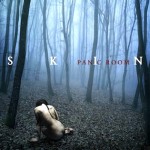Since it’s Jubilee year again, people of a certain age are getting nostalgic about punk.
To hear some of them it’s difficult to escape the conclusion that a couple of years in the late 70s must have been their one moment of excitement in what subsequently became drab and unfulfilled lives.
Yes, punk produced some great rock’n'roll records, and that ought to be it’s legacy. Not the pseudo-intellectual hogwash from certain sections of the music press that went along with it. All those usual tired clichés are being trotted out yet again, and some of the historical revisionism approaches David Irving levels. The idea that punk completely invalidated prog-rock ignores inconvenient facts like Johnny Rotten being a big fan of Van der Graaf Generator, or some of The Damned liking Pink Floyd. Isn’t there something inherently fascistic about anything that tries to define itself purely by what it hates?
I’ve heard one person on Twitter respond to the question of why you can’t listen to both prog and punk with the patronising “If it has to be explained, you just don’t get it”. These people give every impression that they, like the revisionist punk-era music journalists, don’t actually like music for music’s sake. It’s all about socio-political posturing, tribal identity, image and attitude.
If punk was a reaction to anything, surely it was the parlous state top-40 pop in the second half of the 70s after glam-rock had run out of steam. Unlike Pink Floyd or King Crimson, whose music remains influential to this day, enjoyed by people who weren’t even born in the 1970s, the dross that filled the charts back then hasn’t stood the test of time, full of names nobody can remember thirty years later.
So, can we put the oft-repeated lie that “Punk was necessary to save the world from prog-rock” into the dustbin of history where it belongs, and just appreciate the music itself for what it is?
 Storm Corrosion is the much anticipated Anglo-Swedish collaborative project between two of the biggest names in the contemporary progressive rock world, Opeth mainman Mikael Ã…kerfeldt and Steven Wilson of Porcupine Tree and myriad side-projects. While initial expectations might have been that they were going to do something along the lines of the prog-metal of their respective bands’ recent work, they soon made it clear it was going to be something altogether different.
Storm Corrosion is the much anticipated Anglo-Swedish collaborative project between two of the biggest names in the contemporary progressive rock world, Opeth mainman Mikael Ã…kerfeldt and Steven Wilson of Porcupine Tree and myriad side-projects. While initial expectations might have been that they were going to do something along the lines of the prog-metal of their respective bands’ recent work, they soon made it clear it was going to be something altogether different.